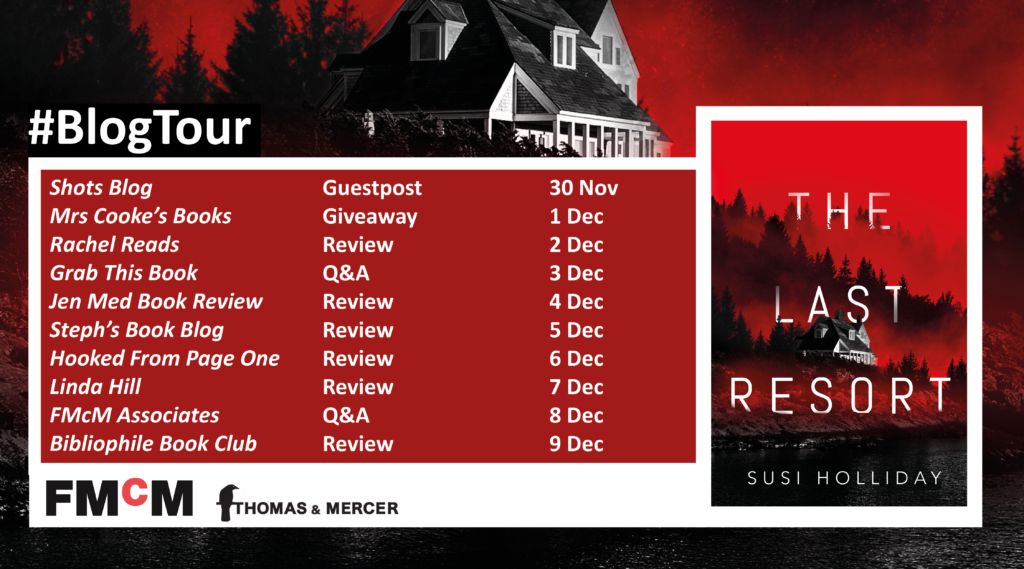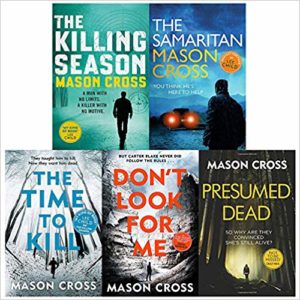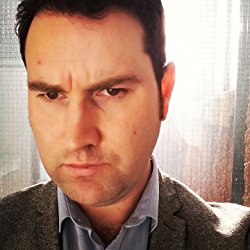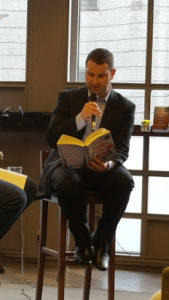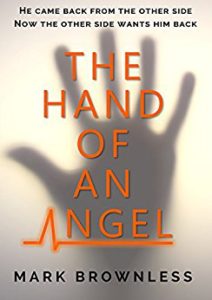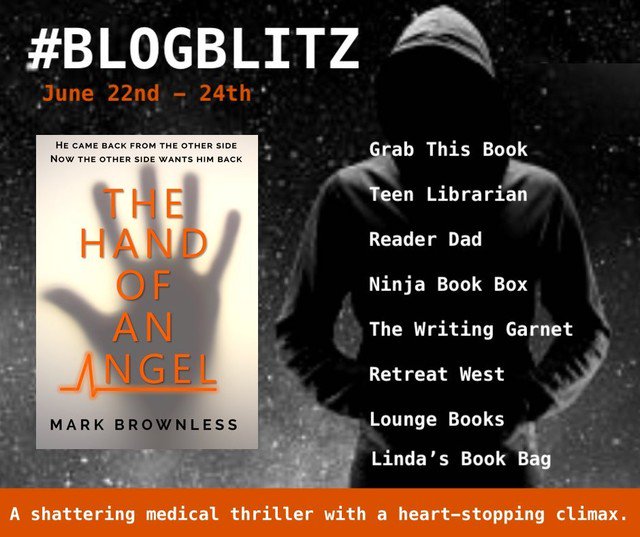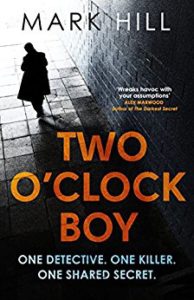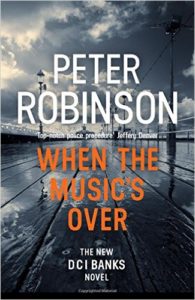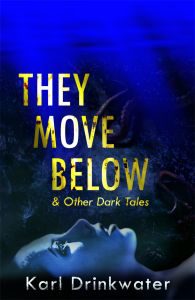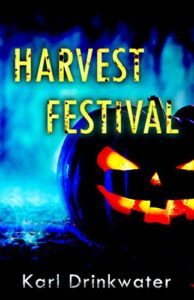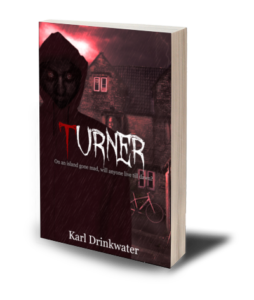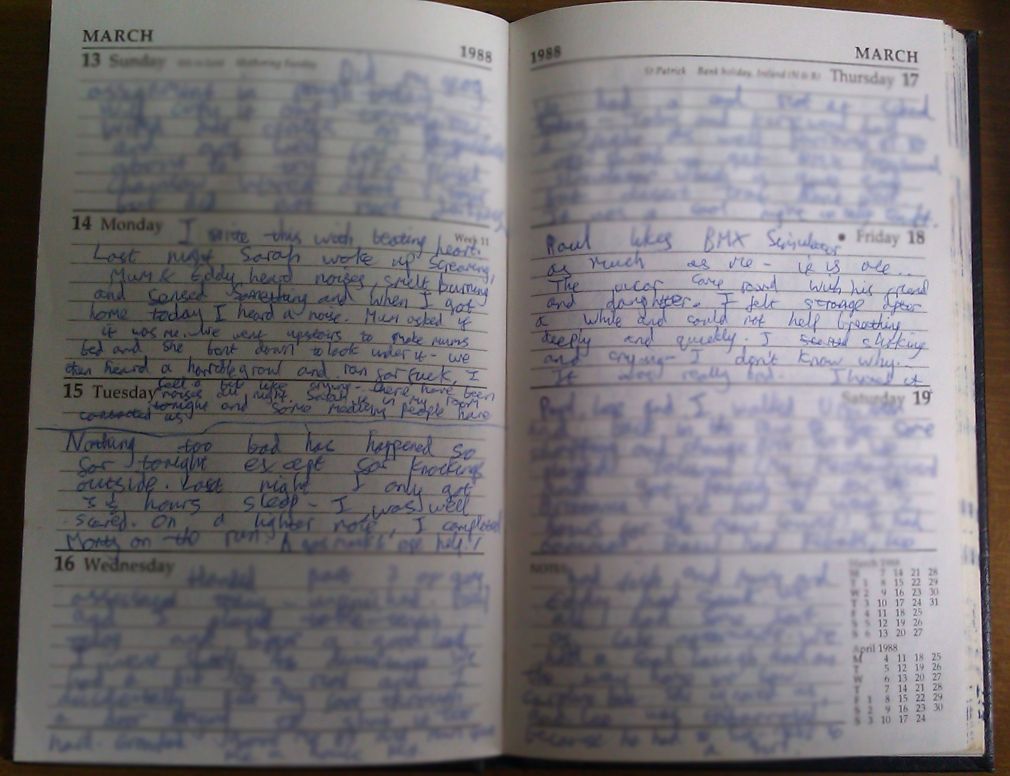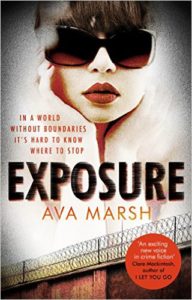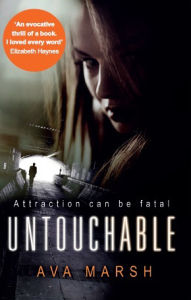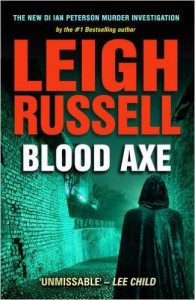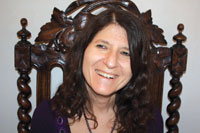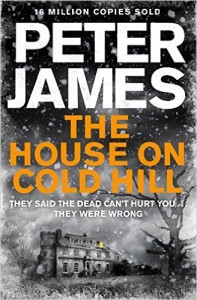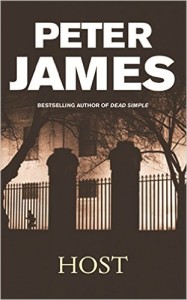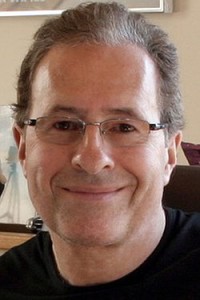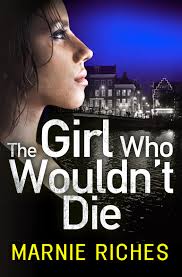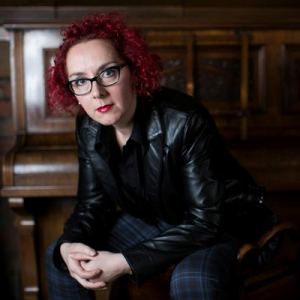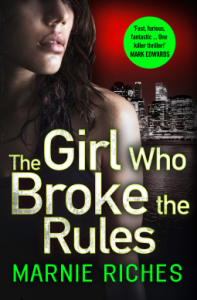The Last Resort – Susi Holliday Q&A
It is an exciting day here at Grab This Book as for the first time in 18 months I have the pleasure of introducing a guest. Today I host the latest leg of the blog tour for The Last Resort – the new creepy, tech, chiller-thriller from Susi Holliday.
I reviewed The Last Resort before the tour kicked off (my review here) so this was the perfect opportunity to try to kick start my brain again and see if I could remember how to ask intelligent, book-related questions. Unfortunately 2020 has mainly been me asking my children “what do you want for dinner?” After deciding Susi would probably not want to chat about turkey dinosaurs or potato waffles I came up with a few questions about heroes, villains and all things technological.
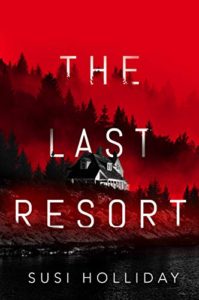 My first question is never a question. Instead I invite you to introduce yourself and take the opportunity to plug your new book: The Last Resort.
My first question is never a question. Instead I invite you to introduce yourself and take the opportunity to plug your new book: The Last Resort.
Hello, Gordon – thanks for having me on your fabulous blog… again 
I reviewed The Last Resort last month when it launched onto the Amazon First Reads programme. In my review I tried to describe the story as “Agatha Christie meets Westworld with some Enid Bylton and Michael Slade”. Not my most elegant description – how do you describe The Last Resort?
I like yours! I’ve been describing it as “Agatha Christie meets Black Mirror” but I love Derek Farrell’s: “The book that Michael Crichton would be writing if he were alive today.” I’ll take that!
Can we focus first on Amelia? I felt the story demanded she was capable and level-headed, particularly when compared to her travelling companions, but she couldn’t be too GI Jane. Could you introduce Amelia and give us a bit of her background? I did wonder if you determined her history before dropping her on the island or did she evolve to cope with what you were throwing at her?
Amelia is meant to be the “good guy” in the story (is she though? You’ll have to read it to find out…) She’s a humanitarian aid worker, and she thinks she’s been invited to the island to assess the infrastructure for the so-called luxury retreat. She’s immediately ill at ease when she meets the other invitees – an influencer, a games designer, a photographer, a journalist, a businesswoman and a nutraceuticals CEO. She’s singled out from the start as being different and she has to work hard to prove herself. She was sketched out a bit upfront as I knew what I wanted her to achieve, but as always, the characters do grow and develop as they interact with the others.
The Last Resort comes with a lot of technology integral to the plot. One key element is the device each of the guests to the island are invited to wear upon their arrival. Could you perhaps outline some of the functions these gadgets can perform?
Then as a further expansion on this. How much of these technological wonders come directly from the Susi Imagination or are the core elements of their devices already out there and you just embellished them up a bit?
Well, they are given a small device about the size of a fitness tracker, and it is clipped over their ear – but then a sharp metal prong pierces the skin and I guess, attaches to their brain! It serves a couple of functions. First, it’s intended to tap into the wearer’s thoughts/feelings/likes/dislikes and help the hosts to determine how to tailor the experience for them – giving them things they want. The Host can also use it to communicate directly with the wearer. All sounds good, right? Except it has another function, where it taps into the wearer’s memories, and at opportune moments through the day’s journey (the whole story unfolds over 24 hours), it projects these memories for the rest of the group to see. This, of course, leads to some shocked reactions from the others. But there are no innocents on this island. That’s the real reason that they are there.
I got the idea for the technology after reading an article in an inflight magazine, where a company in Sweden were using nanotechnology to place chip-like devices into people’s thumbs. The chip would allow you to use your hand as an in-body contactless system, where you could wave your hand over a scanner like you do with your chip and pin card or your smartphone. I thought if that was happening now, it would only be a matter of time before a company started tapping into the wearer’s brain – ostensibly to help in some useful medical way. But of course I decided to twist it around so that the device could only be used for evil purposes. Just as I finalised the edits, I read an article about one of Elon Musk’s companies who are already working in this field. The future is already here, folks!
Joining Amelia on her island adventure is an assortment of largely unpleasant characters. Is it more fun to write about the bad guys in a story? Can you cut loose a little more with the characters the reader is intended to dislike?
Absolutely. I have had a tendency to write unlikable characters from the start of my writing career, because I find them fascinating. Everyone has a dark side – a shadow side – and it’s a lot of fun tapping into that. With this book in particular, it’s kind of all about these unpleasant characters getting their comeuppance. I was inspired by the epic disaster that was Fyre Festival, and all those rich, entitled wannabes paying $12,000 for a luxury festival that ended in them sleeping on wet mattresses in half-erected tents, with processed cheese sandwiches to eat. Yes. Did I mention that I was evil? Haha. Seriously though, yes. I love writing about horrible people.
 The 2020 question also needs to be asked. How have you been keeping yourself sane and occupied this year? Personally I lost all my reading mojo between March and the summer and found some bookish comfort reading comic books or escapism through picking up videogames. Were you able to keep focus?
The 2020 question also needs to be asked. How have you been keeping yourself sane and occupied this year? Personally I lost all my reading mojo between March and the summer and found some bookish comfort reading comic books or escapism through picking up videogames. Were you able to keep focus?
As you know, I have a day job in pharmaceuticals – so that kept me very busy. We were thrown into a position where we had to stop all of the clinical trials, because all healthcare settings were commandeered by virus-related activities. I work from home anyway, but I found myself doing longer hours and suffering more stress, as we had to work on COVID-19 contingency plans to make sure that we could carry on our drug trials as soon as it was possible again. Other than that, I took lots of long walks, and after torturing myself for several weeks, I stopped watching the news. My brain was overloaded. I couldn’t read a thing and struggled to focus on films and boxsets – weirdly, finding comfort in horror, as it made the world as it was/is seem like a walk in the park! I did manage to write a novella that had a deadline during lockdown, but I struggled again after that. I’ve found the whole experience a bit of a mental health rollercoaster to be honest, but now, while we’re in the second wave, I am currently coping a lot better. Reading a lot, writing, planning, and daring to feel a bit hopeful that from spring 2021, things might get a bit better. Ask me again in January when I am completely deprived of sunlight!
You recently Tweeted that your next book had received a thumbs up from your editor – any chance you can share a sneaky clue or two about what we can look forward to in 2021?
Well, seeing as it’s you… It’s called Substitute and it will be out in summer 2021. It poses the question “What if you could prevent the death of a loved one by choosing someone to die in their place?” It’s quite a high-concept idea, and possibly similar to some other recent releases – but I started writing this book in 2014, then put it aside as I wasn’t sure how to make it work. It fits in with The Last Resort in that there is a scientific backdrop to it, a huge moral dilemma, and it’s all wrapped around a domestic noir storyline. I’m editing it now, and I have to say, I’m very excited about this one!
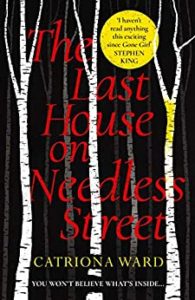 Of all the reading recommendations I see on Social Media every week I think you have matched me with some of the stories I have enjoyed the most. What gems have you read recently which you think we should be picking up?
Of all the reading recommendations I see on Social Media every week I think you have matched me with some of the stories I have enjoyed the most. What gems have you read recently which you think we should be picking up?
We have very similar tastes, I think. I’ve recently been raving about The Apparition Phase by Will Maclean, which scared the pants off me. A couple of months ago, it was all about Hunted by Gabriel Bergmoser, possibly the first book I have wanted to read with my eyes shut; and a recent one you might have missed me sharing called Goodnight Beautiful by Aimee Molloy – which is one of those books you can’t say much about, but I will just say if you liked Misery, you will love it… oh, and of course, next year’s big book – The Last House on Needless Street by Catriona Ward. The ultimate in books that can’t be discussed as any words at all would be a spoiler, but it is just brilliant – please tell me when you’ve read it so we can discuss it! Wait though… also a final shout for Will Dean’s The Last Thing to Burn – which is nerve-shreddingly dark and will be fighting hard against Catriona’s for best book of 2021!
My thanks to Susi for being a fabulous guest and allowing me the opportunity to return to sharing something other than my usual ramblings. Her support is always very much appreciated and now I have the urge to chat with a few more people…watch this space!
The Last Resort is published by Thomas & Mercer and is available in paperback, digital and audiobook format. You can order a copy here: https://www.amazon.co.uk/gp/product/B085HCCP4W/ref=dbs_a_def_rwt_bibl_vppi_i0
